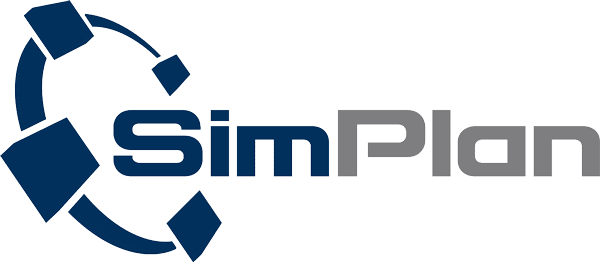High-tech for SMEs: h_da develops innovative AI processes for production with industry partners
Darmstadt/Hanau 11.02.2022
Mathematicians at Darmstadt University of Applied Sciences (h_da) are developing innovative AI technologies together with Hanau-based simulation service provider and software company SimPlan and automation expert Fibro Läpple Technology. As part of the LOEWE project “KISPo”, the consortium aims to develop autonomous, self-learning control software for production plants, such as those used in the manufacture of components for wind turbines or electric motors. It would be the first AI software of its kind. This would close a technology gap long criticized by industry associations and researchers. The state of Hesse is funding the project for two years with 320,000 euros. The consortium leader is the h_da.
The global, digital networking of production sites, machines and logistics centers presents companies with new challenges. “Industire 4.0” is the buzzword – more speed, flexibility, autonomy and, not least, sustainability are required. Medium-sized companies in particular are therefore dependent on the development of innovative technologies in order to keep pace with the changes. “This is especially true for the manufacturing sector,” says h_da mathematician Prof. Dr. Horst Zisgen, who used to work in “research or development” at the IT corporation IBM. “A company that produces different types of electric motors, for example, depends on many suppliers and smooth processes. Demand is high, and production must run efficiently. But if there are disruptions in the manufacturing process at any point, it’s hard to adjust the flow today.”
Currently, the production process is controlled according to rigid rules that were defined and programmed at some point. In the event of malfunctions, manual readjustment, i.e. reprogramming, is necessary – which costs time and money. “If, for example, an assembly station fails on my factory floor where two red screws are assembled, I have a problem – as of today,” the mathematics professor simplifies the problem. “An intelligent system would be able to react independently and reroute the complex production process without loss of efficiency.” Then, for example, the production of another component (without “red screws”) would temporarily get priority.
Zisgen and colleagues want to develop such intelligent control systems for a specific type of production plant. The project title “KISPo” stands for “AI method for controlling digital gantry robot twins”. In gantry systems, workpieces, for example the cast raw part of an electric motor, are transported from one processing station to the next. At each station, a work step or component is added. The transport takes place in trolleys that are equipped with gripper arms and travel from station to station via a rail system. Products typically manufactured with such plants represent a wide range: from wind turbine gearboxes to components for trains. Larger plants of this type fill entire factory halls.
Intelligent control software based on machine learning or reinforcement learning is not yet on the market for such complex plants – a shortcoming that is lamented by both the industry association VDMA and the scientific community. In 2018, a study by the Fraunhofer-Gesellschaft on machine learning came to the conclusion that a “stronger and faster application-oriented implementation of AI in concrete product, process and service innovations” was needed to make Germany competitive as a business location in the long term.
Zisgen and its partners from Hanau in Hesse and Haßmersheim in Baden-Württemberg are pushing into this gap with “KISPo”: “The technological solution we are aiming for offers clear competitive advantages: Production becomes more flexible, companies can react faster to changes in the market and in supply chains and thus operate more efficiently and sustainably,” emphasises Boris Bind, Head of Engineering at FLT. The software the consortium is working on is trained in the development phase using simulation models developed by the Hanau-based company SimPlan. “When our software prototype is then used for the first time, the system is already well trained and can master difficult situations. In practical use, it continues to learn,” explains Prof. Dr. Sven Spieckermann, spokesman for the board of SimPlan AG.
The three players from science, the software industry and plant engineering see an opportunity to anchor the field of “reinforcement learning” in small and medium-sized enterprises through research in the consortium. “This is about knowledge transfer in the best sense,” emphasises consortium leader Prof. Dr. Horst Zisgen. “It’s not just individual companies that can benefit from these new processes, but the science and business location of Hessen as a whole.”
SimPlan AG
SimPlan AG was founded in 1992 and is today the leading service provider for the simulation of operational processes in production and logistics. Customers from all sectors rely on the services of the “simulants”, including companies from the automotive industry, trade and mechanical engineering. From independent advice on the selection of the right simulation software and IT integration to the professional implementation of simulation projects – SimPlan offers users a full-service package. State-of-the-art simulation technologies are used, above all augmented and virtual reality solutions. The company is headquartered in Hanau. Today, the group includes the subsidiaries SimPlan Integrations and SimPlan Systems as well as branches in Braunschweig, Bremen, Dresden, Holzgerlingen, Munich and Regensburg. The simulation service provider covers international markets with a branch in Austria and another in China. SimPlan AG employs a total of 140 people worldwide.
Kontakt Simplan
Dirk Wortmann • SimPlan AG
Sophie-Scholl-Platz 6 • D-63452 Hanau
Telephone: +49 (0)6181-402 96 0 • Fax: +49 (0)6181 402 96 19
E-Mail: dirk.wortmann@SimPlan.de • Internet: www.SimPlan.de
